ANDY SERKIS: Yeah, of course.
The community, how it’s evolved technologically, using language.
So thats really the way we step into it.
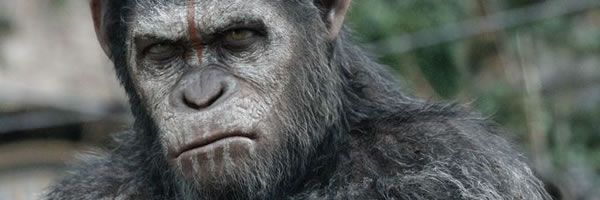
It’s quite an evolved community.
There are rules, there are codes of living and codes of ethics.
Because obviously there’s a new generation now.
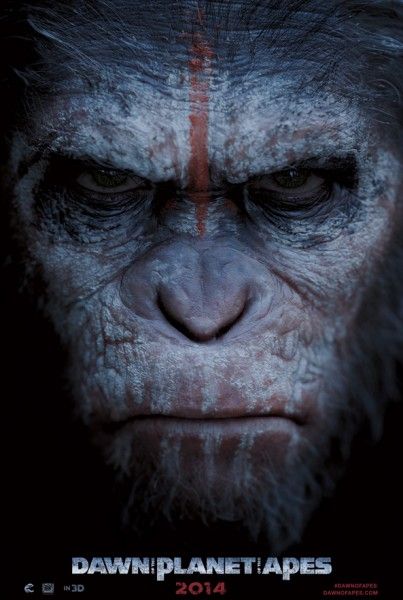
Image via 20th Century Fox
There are varying responses, the apes have varying responses.
Caesar is the king and he leads this- and he has a very natural authority and a natural leadership.
He’s not a regal king, he’s very much an ape’s ape.
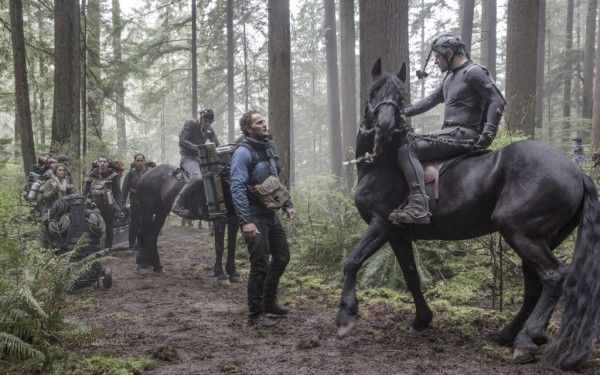
He’s egalitarian in his way of thinking.
So what can you tell us about Caesar’s family life?
So it’s very much the beginning of the new generation.
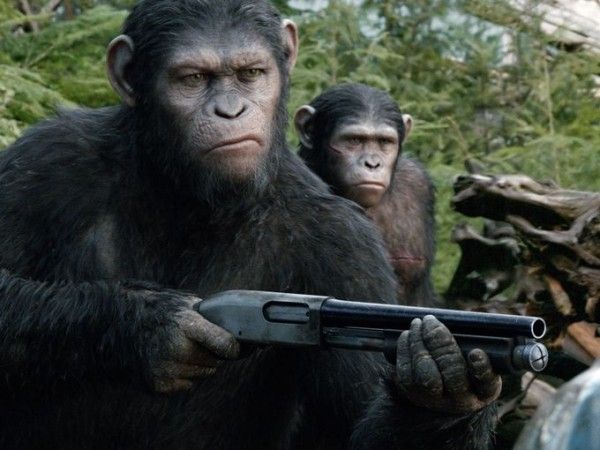
Image via 20th Century Fox
They’re suffering to a great degree.
He makes a connection with this one character played by Jason Clarke called Malcolm.
There’s a respect and understanding from both sides that the situation that they’re in is a disaster.
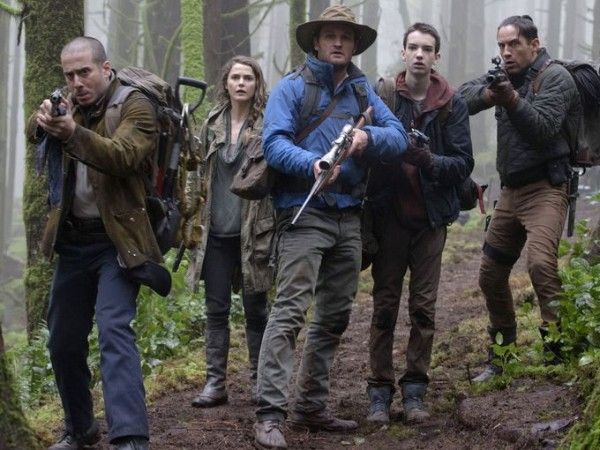
So it’s a tricky balance.
He’s watching his father and judging his father and his father is judging him.
So yeah, there is a big- this is like aGodfathermovie.
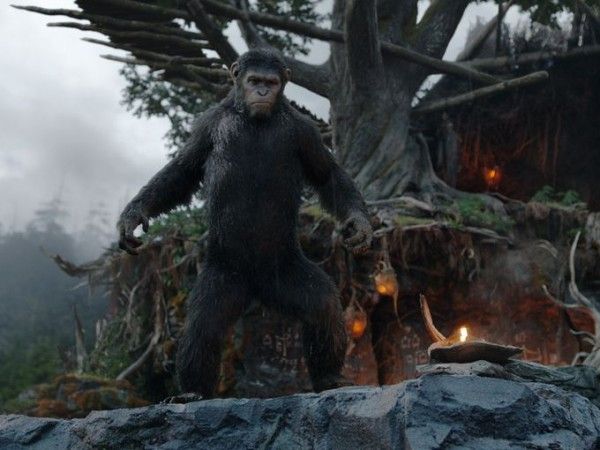
Image via 20th Century Fox
You’ve been doing it so long, kind of bringing it to the forefront.
I’m directingAnimal Farm, we recently went to the states and did a big casting session.
There is a great understanding of that.
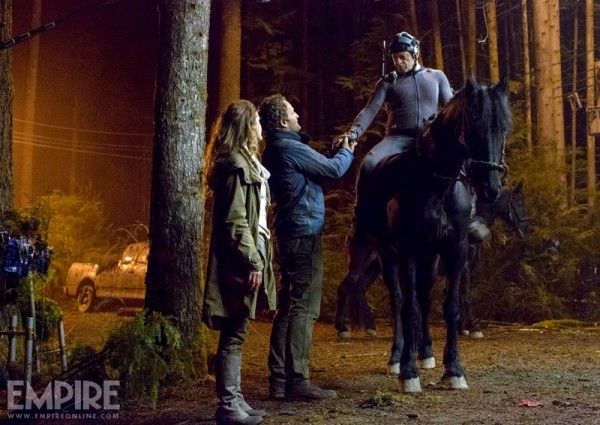
Directors respond to performance capture technology in a lot of different ways.
More thanAvatar, more thanThe Hobbit, more than anything really, because there’s so many location shoots.
Everything is location, there’s very little set work, so we’re capturing outside in difficult circumstances.
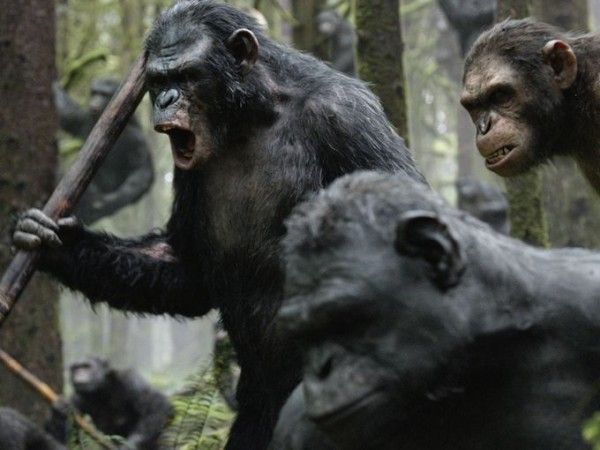
Image via 20th Century Fox
We’re putting cameras in trees and covering large areas.
Everything is very, very robust now.
The system is very, very robust.
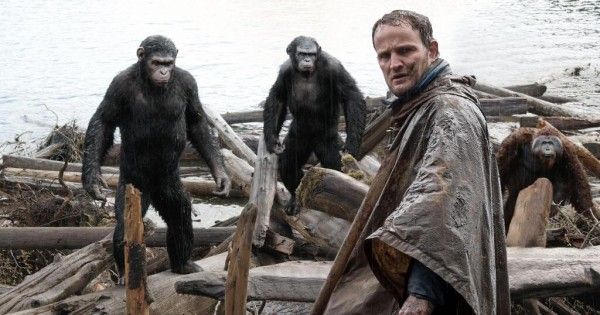
How did you figure out where the balance would be.
We’ve arrived at it together as a group of filmmakers and the actors as well.
Kong doesnt speak, but he communicates.
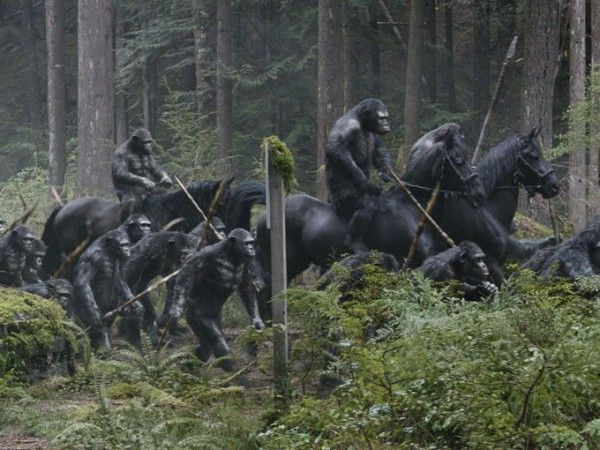
Image via 20th Century Fox
With this it’s a very delicate balance, because there is speech.
SERKIS: Yeah, it’s interesting.
Finally it was proved that he wasnt, but there were lots of DNA tests on him.
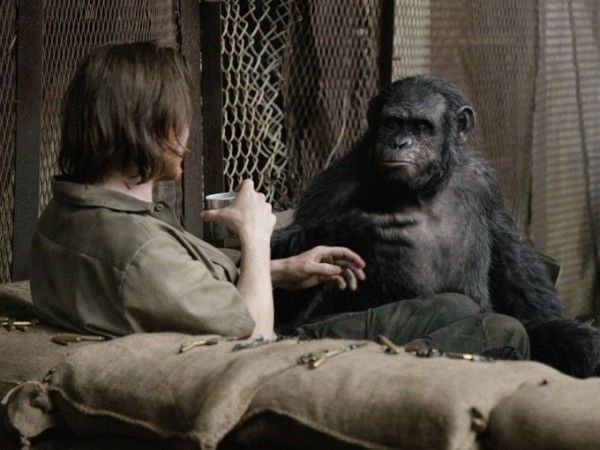
That is really Caesar’s drama in this and the complexity of the role is really about that.
How much is the community of apes rebelling against Caesar when he shows the humans some compassion?
Because some of them believe- basically there are different ways of going.
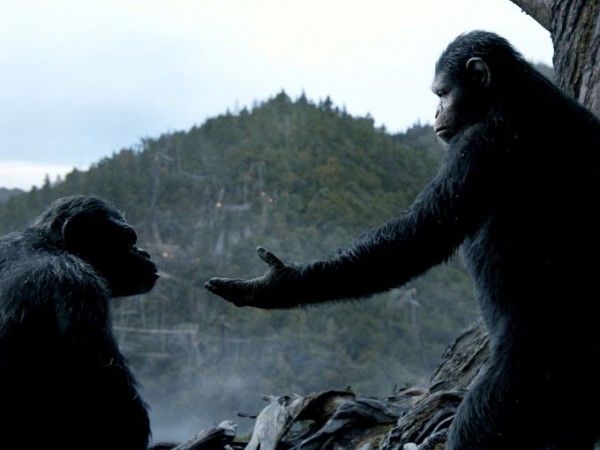
Image via 20th Century Fox
So without telling you too much about the story, that’s really the dilemma for Caesar.
SERKIS: That’s absolutely core to the story, yeah.
As in the original movies, that’s what makes these stories so powerful, allegories, semi-political.
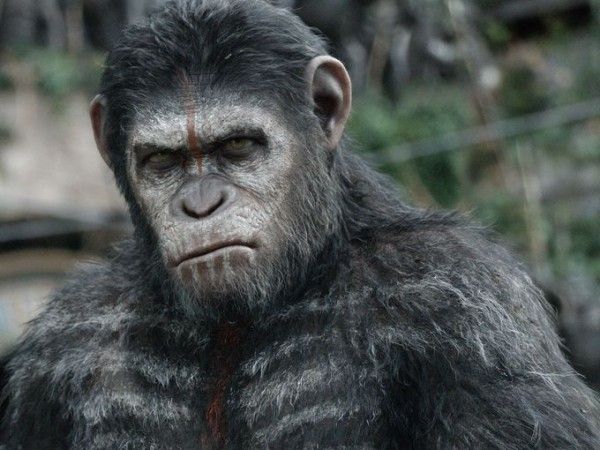
Image via 20th Century Fox
SERKIS: Yeah, yeah it is.
We’ve yet to shoot that scene, but on the page it’s very beautiful.
It will be an extraordinary thing to play, I think.
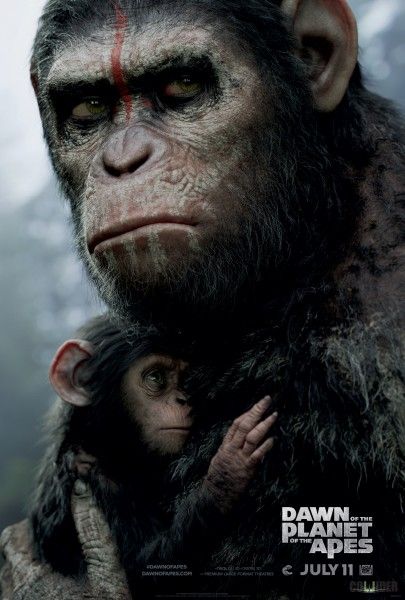
How do you describe Matt Reeves directing so far?
SERKIS: Matt’s an extraordinary director, you know.
He does that beautifully, actually.

Tell us about the scene you’re filming today.
So it’s sending out a very strong message whilst trying to keep the peace.
The role was obviously really celebrated, there was a movement for a supporting actor nomination and everything.

People love this character and the work that you did.
Do you feel more confident in the role coming back for the sequel?
Is there a little boost in knowing that people want to see more of this guy?
SERKIS: You know, I love the character.
I loved playing him in the first movie.
It was a very, very- yeah, it was a great role.
This is, again, it’s more complex.
There’s really subtle scenes and subtle moments, so as an acting challenge this is a lot greater.
So yeah, I’m loving playing it, absolutely relishing the role again.
And I’m working with such great actors, too.
We have such an amazing cast, both human and ape.
Jason’s a fantastic-
You also referred to the environment, the rainforest.
SERKIS: Yeah, the very opening of the movie is set in the ape’s world.
You dont believe that humans exist anymore.
You just think the apes have created this utopia.
Really the first confrontational scene is pretty powerful.
When the humans arrive in the environment, that is pretty powerful.
So actually I think thats a pretty cool one.
I love working with him, it’s terrific.
How involved were you in the auditioning process for the apes?
Toby had talked to this group about meeting you for the first time.
SERKIS: Oh okay, exactly.
Toby Kebbell, who’s playing Koba in this, came in and he was brilliant.
He was absolutely amazing and he clearly really wanted that role.
Came in and just grabbed it and I grabbed him [laughs] and we just went for it.
I really pushed him and he responded.
There was no question that he was the right person for this part.
Why did you cast him as a young man for an older age role?
It’s not dependent on your looks in any way.
Thats the wonderful thing about this media is that it allows you to transport.
you might play any scale of character size, you’re not inhibited to play your own species.
Did he audition for that particular role?
SERKIS: Yeah, he came in for that role.
Toby’s an amazing actor.
Great as stunt guys are, we have some amazing stunt guys on this- brilliant, hardcore stunt guys.
Do you pay attention to the original series?
Is the idea to follow that in some way where that will all line up eventually?
SERKIS: Exactly, that’s right.
You could play the lineage of Caesar.
SERKIS: Well, I mean…you know[Laughs].
Thats the great thing.
The other thing is, you should know, there are great other ape performers on this.
I dont know if you met Terry [Notary] yet.
SERKIS: Terry’s extraordinary and Karin [Konoval], and all of the other guys.
But Terry is phenomenal.
He is an extraordinary coach, he’s an extraordinary human being, and he plays Rocket in this.
Terry more than most, actually.
Matt’s got a lot to deal with, so he plays a huge part.
People still come up to me and say, “So you did the voice of Gollum? "
And I go, “No I didnt do the voice of Gollum, I played Gollum.”
We’re inhabiting the role as fully as the folks wearing costume and makeup.
So yes, that for me is important, that performance capture is fully understood.
And it’s proving to be the case.
There isn’t that stigma attached to it any more, even from the last Apes movie.
There are film cameras, there are performance capture cameras.
SERKIS: Well thats not actually true, because you might actually see the environment virtually.
You’re looking, as the director does, looking into a monitor.
Thats just part of the craft, I suppose, learning how to use it.
You have to mentally construct those things and actually find different routes.
It is like mask work or puppeteering, being both marionette and puppeteer.
SERKIS: No, not really.
Once you’ve lived through the scenes your emotional memory, your muscle memory all flows back in.
SERKIS: For sure.
I mean, this is happening now.
Obviously, we’re seeing more and more in films.
Performance capture is actually a hugely important tool in next generation story telling across all media.
So it’s got hundreds of applications and uses for storytelling.
There’s all sorts of tool which are being used.
It’s a very, very interesting and phenomenally exciting time for it.
Who are you going to be playing inAnimal Farmor are you just directing it?
SERKIS: I’m directing it and I may well be playing a part in it [laughs].
How’s that movie progressing, is it going well?
SERKIS: Oh yeah, it’s going well.
Where are you at in production?
SERKIS: At the moment we’re in preproduction so we’re prevising the whole movie.
We will probably be shooting in March or April of next year.
SERKIS: In London at our studios at Imaginarium.
Do you know the book by heart at this point?
SERKIS: Yeah, I do, yeah.
SERKIS: Thats a possibility, yeah.
Again, thats not confirmed, but I’ve heard the same.
Dawn of the Planet of the Apesopens July 11.
For more from my set visit: